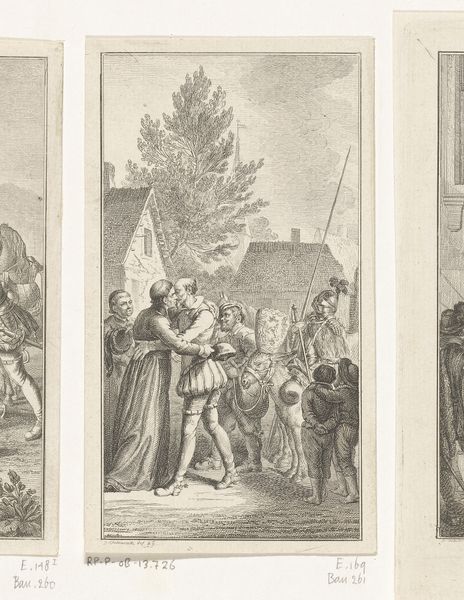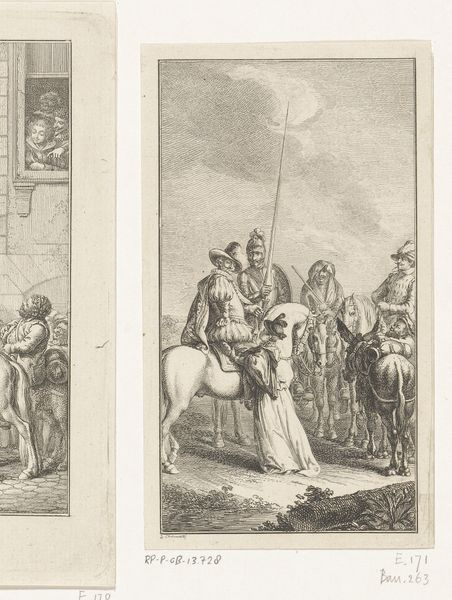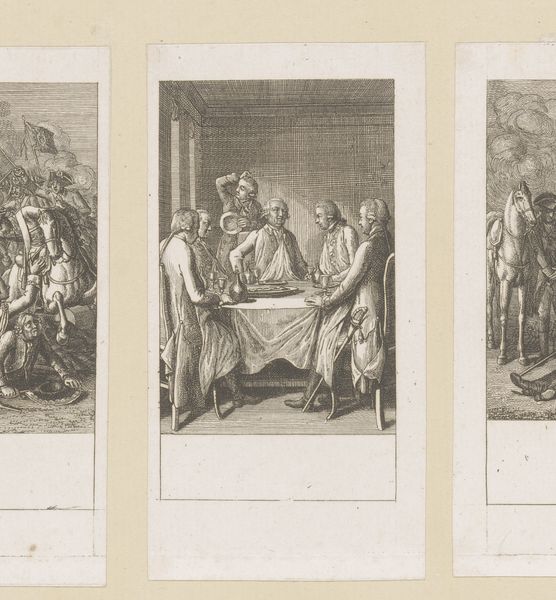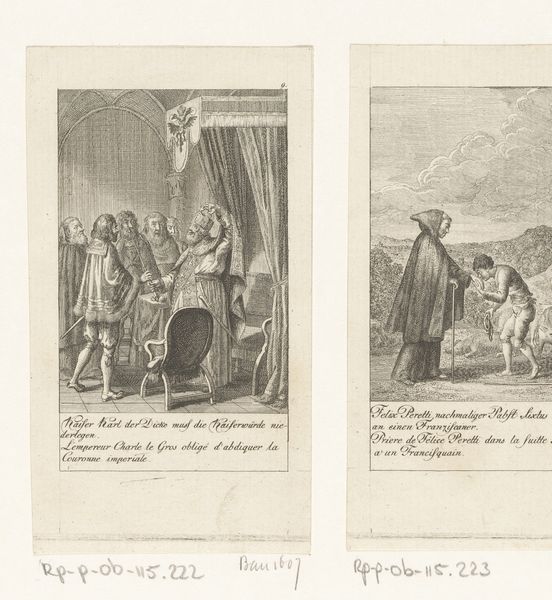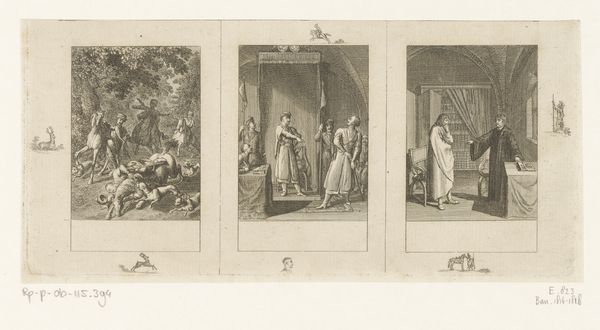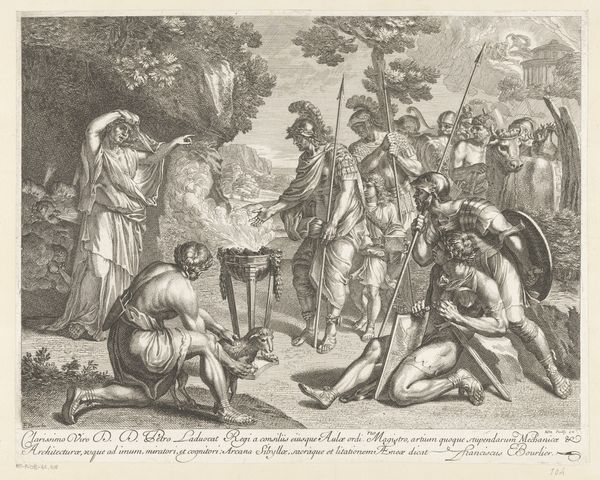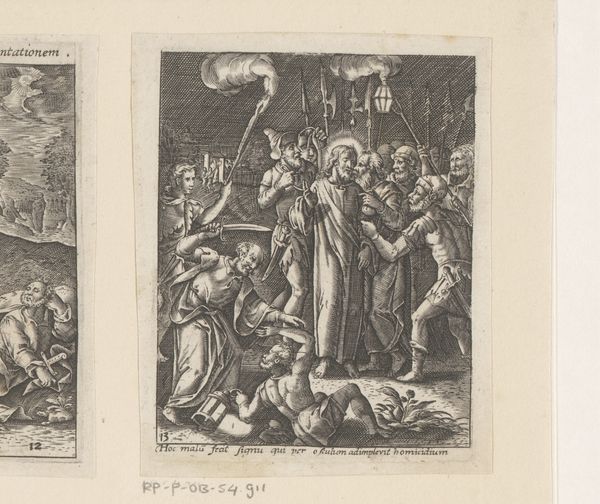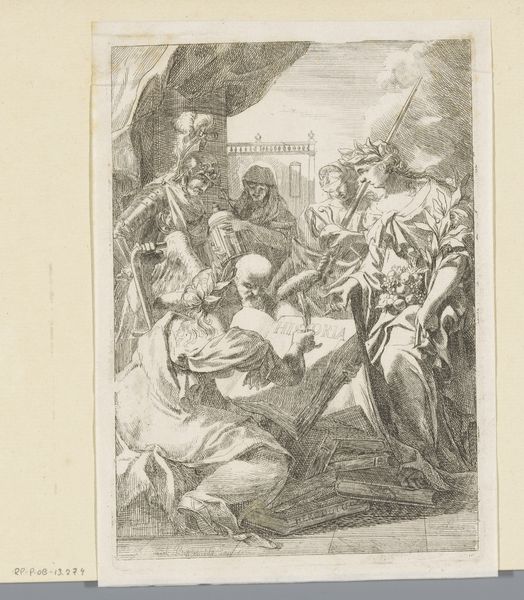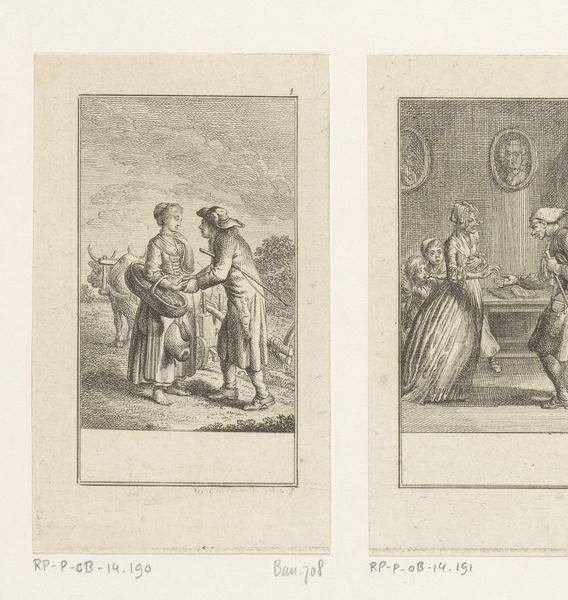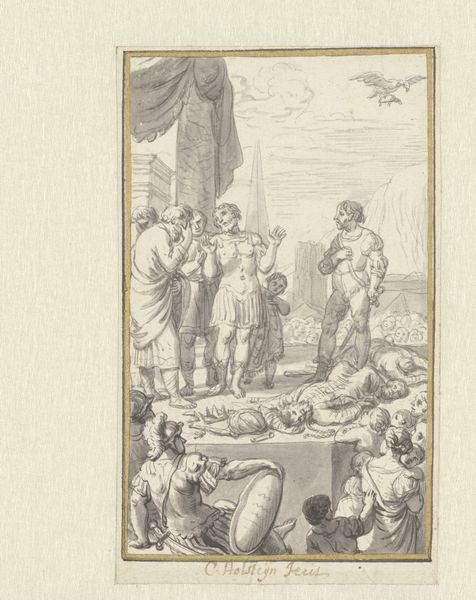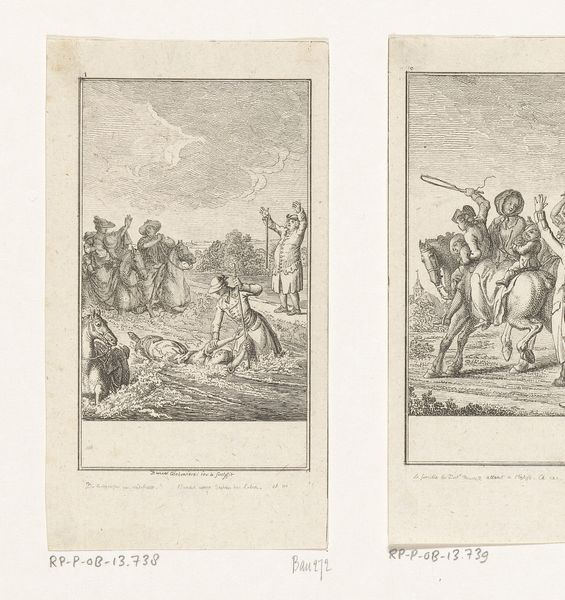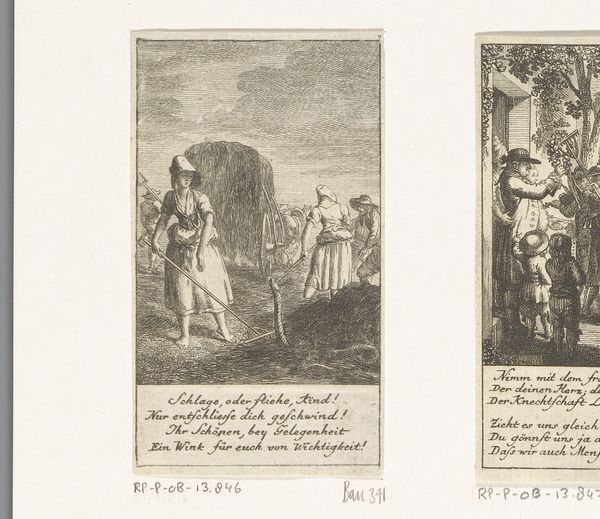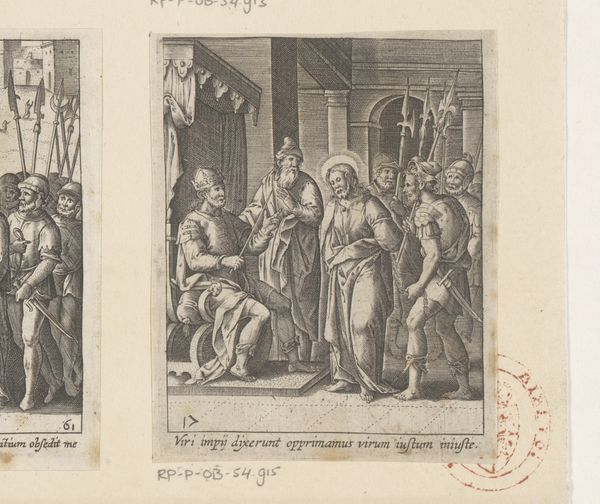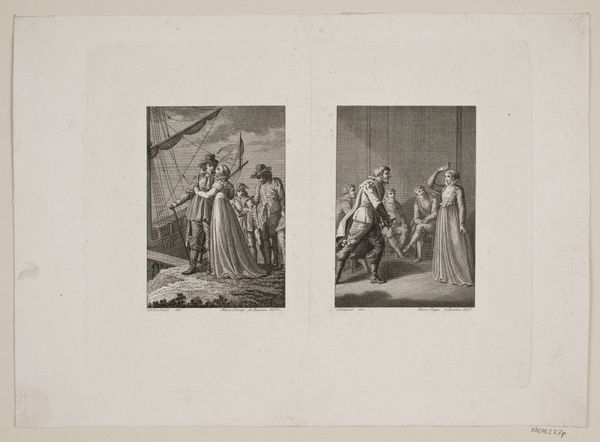
Dimensions: height 134 mm, width 76 mm
Copyright: Rijks Museum: Open Domain
Curator: Here we have Daniel Nikolaus Chodowiecki’s 1775 etching, "Don Quichot helpt de van haar ezel gevallen boerin," which translates to "Don Quixote helps the farmer’s wife who fell from her donkey," housed right here at the Rijksmuseum. Editor: Immediately, I get a sense of staged drama. There's a delicate balance, or rather imbalance, of humor and seriousness. The fallen woman and the assisting Don Quixote have me picturing some comedic Baroque street theater. Curator: Chodowiecki was, of course, working within the traditions of Baroque art, particularly its emphasis on capturing dramatic moments, but there's a unique twist here. He really captured a moral narrative as he had in much of his oeuvre. Don Quixote, known for his idealism, rushes to assist someone, a simple act that reflects Enlightenment values and social commentary of his day. Editor: Right, but also a dash of madness. I mean, look at the almost manic energy in Quixote's posture versus the woman who's just sprawled out in a moment of pure, unglamorous chaos. Is it helping or meddling? This feels so current! It has you wonder, does doing good always require some self-deception? Curator: Ah, the eternal question of intent versus impact! Chodowiecki leaves that beautifully ambiguous. The small format print like this one meant it was reproducible and could be distributed widely to promote new morals during the rise of print culture. These accessible artworks encouraged viewers to emulate kindness, or to see that such emulations are always somewhat absurd. Editor: In that regard it’s almost photographic, no? These little images capture these grand moral concepts so well, it almost makes you nostalgic for when enlightenment meant, well, something simpler! Curator: And I'm charmed by that simplicity. It allows a nuanced interaction with both literary and real world encounters with everyday compassion in a rapidly shifting European society. Editor: Definitely. For me, this little slice of narrative speaks volumes—about theater, reality, and how the simplest acts of supposed kindness might really just be elaborately masked follies. It seems even back then we loved staging our lives!
Comments
No comments
Be the first to comment and join the conversation on the ultimate creative platform.
